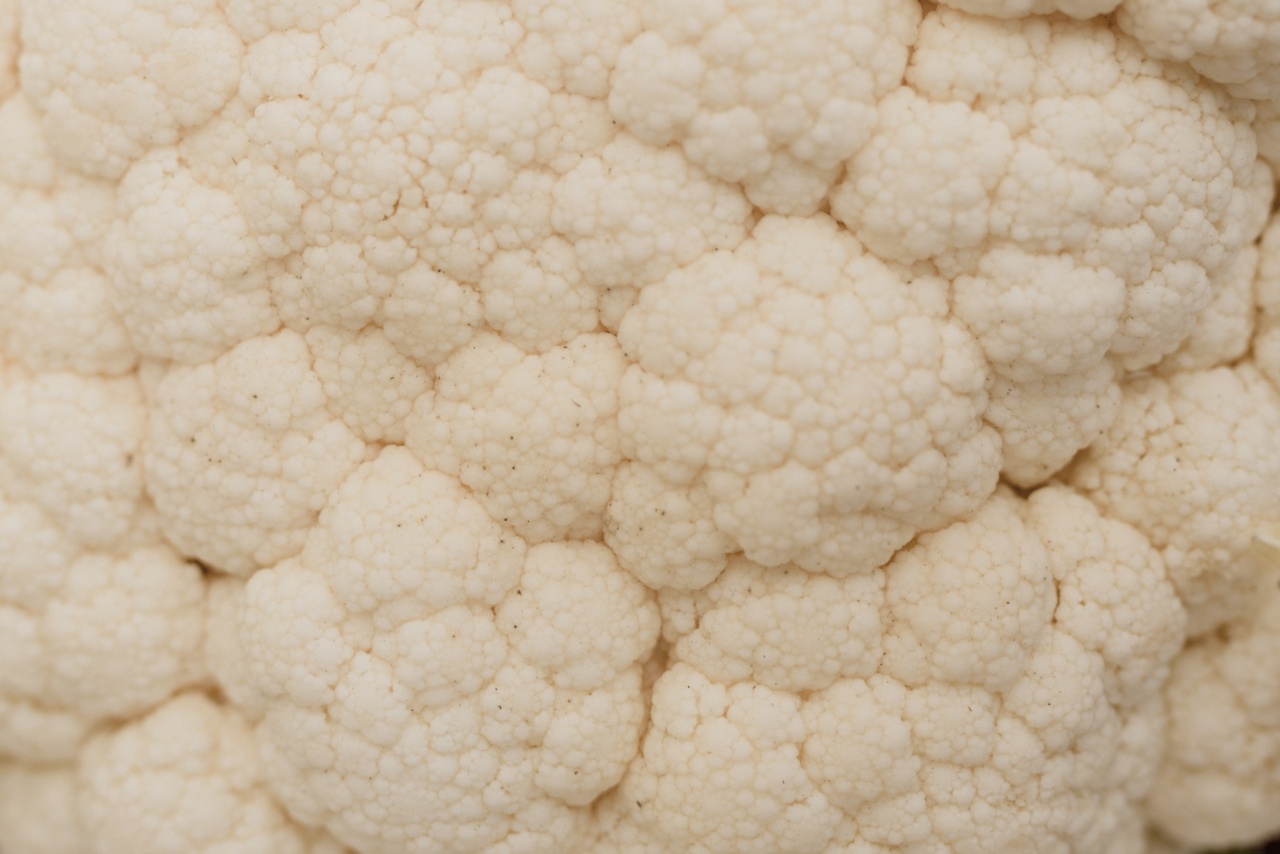Cauliflower is a cruciferous vegetable that is packed with nutrients and has various protective properties. It belongs to the same family as broccoli, cabbage, and kale.
This veggie is versatile and can be used in various recipes as a substitute for rice or even pizza crust. In this article, we will explore the benefits of cauliflower and how you can incorporate it into your daily diet.
What Are the Nutritional Benefits of Cauliflower?
Cauliflower is an excellent source of key nutrients that our body requires to function properly. It is rich in fiber, vitamins C, K, B6, B9, and minerals such as potassium, magnesium, and manganese.
Here are some of the nutritional benefits provided by cauliflower:.
1. Excellent Source of Antioxidants
Cauliflower is an excellent source of antioxidants that can help to neutralize the damage caused by free radicals in our body. The antioxidants contained in cauliflower can help prevent chronic diseases and boost our immune system.
These antioxidants include vitamin C, beta-carotene, and quercetin.
2. Promotes Digestive Health
Cauliflower contains high levels of dietary fiber which contributes to good gut health. The fiber in cauliflower can promote regular bowel movements and prevent constipation.
In addition, cauliflower is rich in water which can help to hydrate the digestive tract and prevent inflammation.
3. Boosts Brain Function
The vitamin B6 and choline in cauliflower is beneficial for brain function and development. Vitamin B6 plays a significant role in producing neurotransmitters that are responsible for carrying messages from the brain to the body.
Choline is an important nutrient that is essential for the creation of cell membranes and can enhance memory function.
4. Protective Against Cancer
Cauliflower contains compounds such as sulforaphane, glucosinolates, and indoles that have cancer-protective properties.
Studies have shown that sulforaphane can help prevent the formation of cancer cells and fight oxidative stress in our body which can lead to cancer development.
5. Anti-inflammatory Properties
Cauliflower contains compounds such as kaempferol and quercetin which reduce inflammation in our body. These compounds can help relieve symptoms of conditions like arthritis and inflammatory bowel disease (IBD).
How to Incorporate Cauliflower into Your Diet
Due to its versatile and mild taste, cauliflower can be used in various recipes to boost nutritional value. Here are some ways to incorporate cauliflower into your diet:.
1. Cauliflower Rice
You can swap out rice or other grains with cauliflower rice for a low-carb, nutrient-dense meal. To make cauliflower rice, grind the cauliflower florets in a food processor until they resemble rice.
Sauté the cauliflower rice with some garlic and herbs and use it in stir-fries, fried rice, or even burrito bowls.
2. Cauliflower Wings
Cauliflower wings are a delicious vegetarian alternative to chicken wings. Cut the cauliflower into florets, coat them in a batter made with flour and spices, and bake them in the oven for a crunchy and satisfying snack.
3. Cauliflower Soup
Cauliflower soup is a warming and comforting meal that is simple to make. Sauté onions, garlic, and cauliflower in a pot, add some vegetable broth, and let it simmer until the vegetables are tender.
Blend the mixture until it’s smooth, season with salt and pepper, and serve with some crusty bread.
4. Cauliflower Pizza Crust
Cauliflower pizza crust is a great way to enjoy pizza without the added carbs. Mix some cauliflower rice with eggs, cheese, and spices, form it into a crust, and bake it until golden brown.
Add your favorite toppings and bake for a few minutes until the cheese is melted.
Conclusion
Cauliflower is a nutritious and protective vegetable that can benefit our health in numerous ways. It is rich in antioxidants, fiber, vitamins, and minerals that can prevent chronic diseases, boost our immune system, and improve our digestive health.
Incorporate cauliflower into your daily diet with these easy and delicious recipes to reap its full benefits.





























